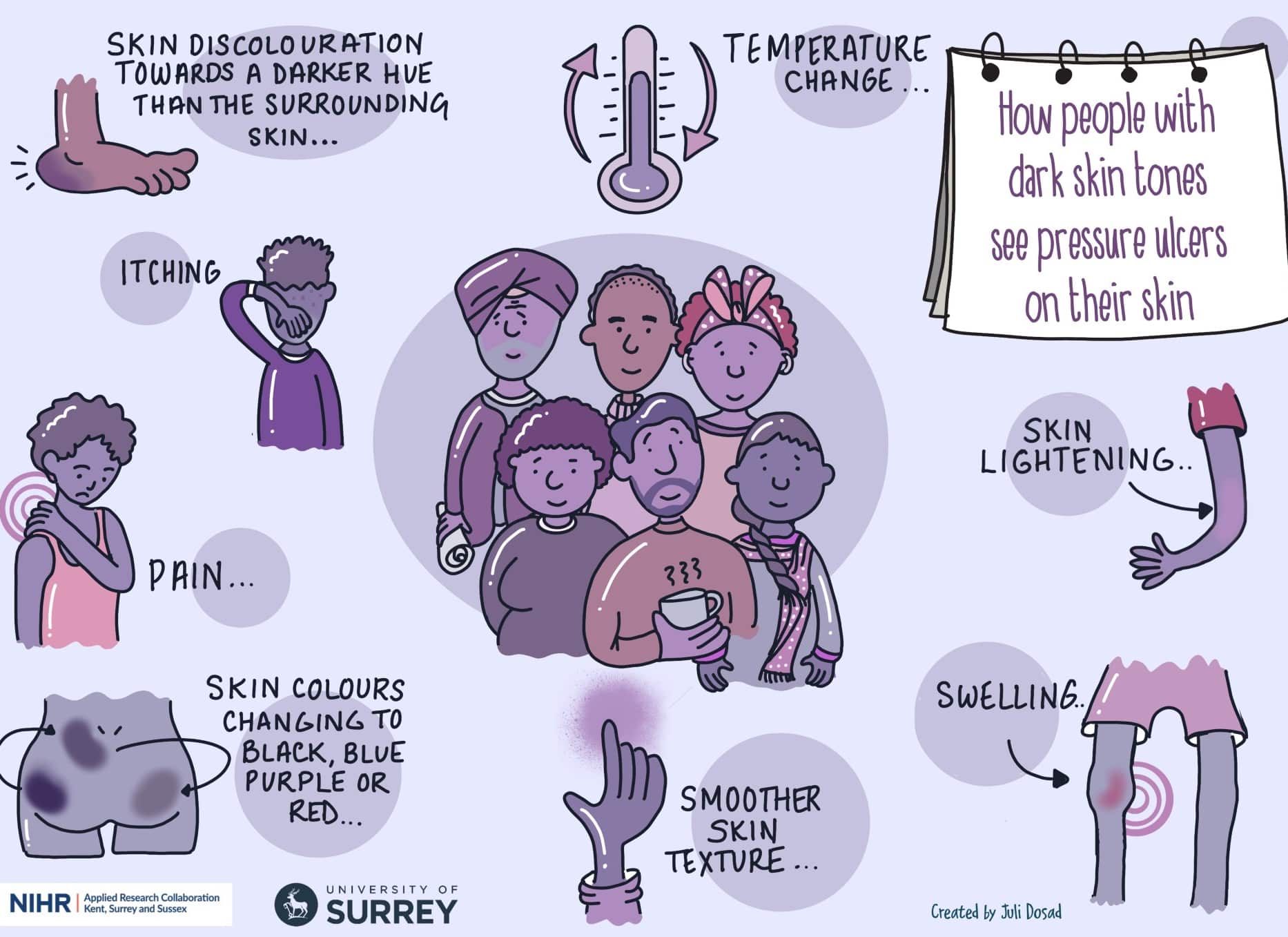Identifying Pressure Injuries Earlier in Dark Skin Tones
19 July 2024
QNI Council Member Dr Neesha Oozageer Gunowa and her colleagues have published vital research which supports the early identification of pressure injuries in people with dark skin tones.
Significant health inequities remain in the diagnosis of skin conditions in people with dark skin tones. This is particularly evident for pressure injuries, where Dr Oozageer Gunowa has found people with darker skin tones are more likely to develop higher stage pressure injuries. As this stems from a lack of inclusivity in research and education, Dr Oozageer Gunowa and her colleagues Dr Kwame Adomako Oti and Professor Debra Jackson have published a new qualitative study which addresses this issue and offers a path forward for improved care and outcomes.
Through twenty-two interviews, the study explored the personal experiences and perceptions of community-based patients with dark skin tones and their carers, regarding pressure injuries. Patients included those receiving care from community nurses for pressure area management, or who were identified as having a high risk for developing pressure injuries.
This study sheds light on the unique challenges faced by individuals with dark skin tones in the early identification and management of pressure injuries, providing valuable insights from both patients and their carers.
Dr Oozageer Gunowa
One of the most important findings of the study was that it clearly presented how early-stage pressure damage is identified differently among people with dark skin tones. For example, participants often identified skin discoloration towards a darker hue as a primary indicator of a potential pressure injury. This contrasts with the signs recognised in people with light skin tones, such as redness, highlighting the need to assess skin tones to accurately identify pressure injuries.
These findings resulted in an infographic being created (see above) to represent the early signs of pressure damage expressed by participants. This lays the foundations for the development of patient-informed educational strategies for nurses and other healthcare professionals, to allow the earlier identification of pressure injuries in dark skin tones.
Dr Oozageer Gunowa commented, “While we are incredibly proud to contribute to the body of knowledge in this vital area, it is with a sense of regret that I acknowledge this is the first time such a critical topic has been explored and researched.
“This study sheds light on the unique challenges faced by individuals with dark skin tones in the early identification and management of pressure injuries, providing valuable insights from both patients and their carers.
“It is our hope that these findings will pave the way for further research and lead to significant improvements in healthcare practices and outcomes for this often-overlooked population.”
This study serves as a call to action to incorporate skin tone assessment into nursing education and practice, and is a vital step towards addressing health inequities and improving care for people with dark skin tones.

 Back to News
Back to News